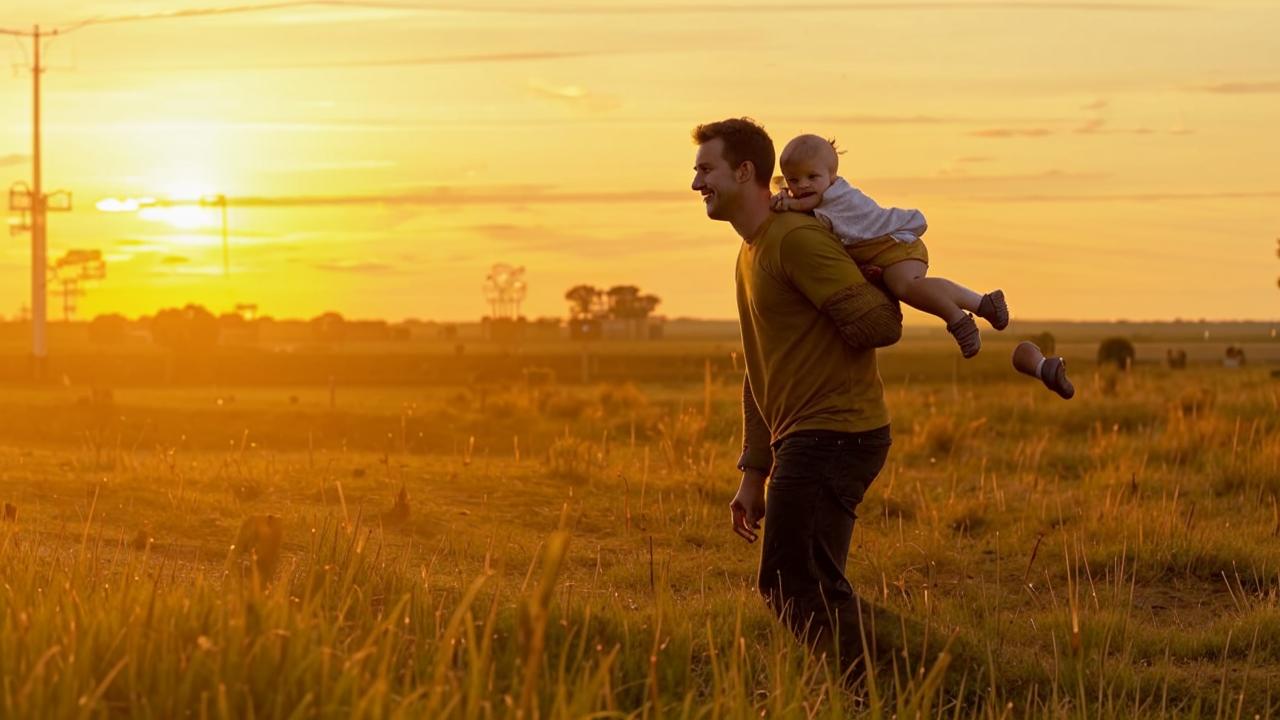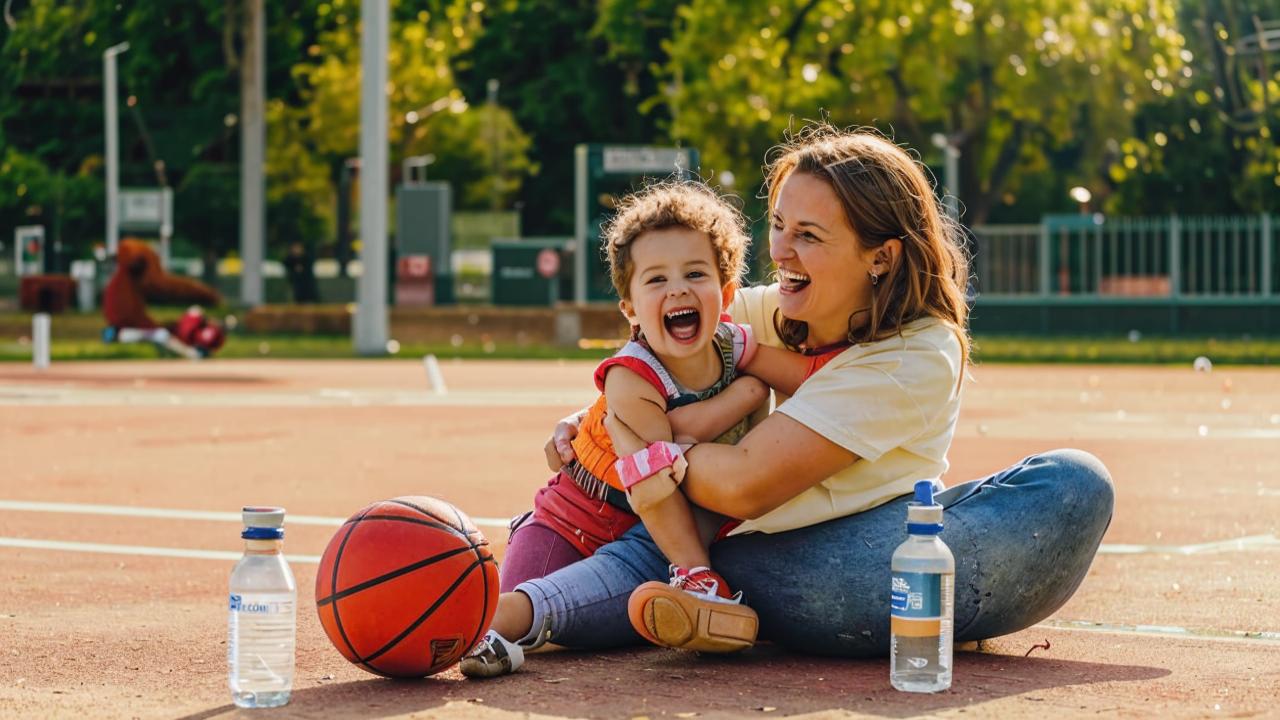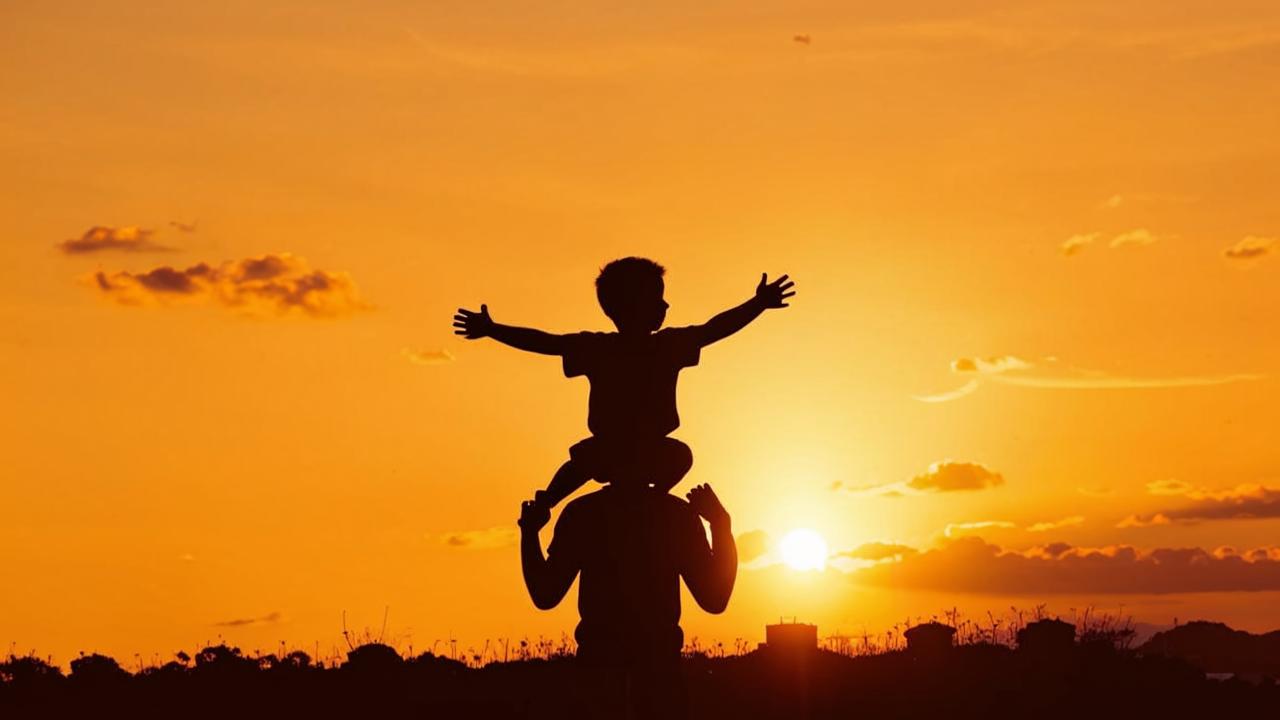physician, psychosomatologist, neuropsychologist
“How do you work through childhood traumas? To do this, you first need to understand what it’s about. In children, psychological traumas can be different. The result is always the same – an adult who can not fully live”.
Childhood psychological trauma: consequences
Imagine that you are walking in a warm fall park, leaves rustle under your feet, trees crackle softly in the wind, the sun is shining and you have a beautiful day off ahead of you. But at some point you stumble and twist your leg, get up, but still feel unpleasant sensations and start limping. You’ve suffered a physical injury. It always creates limitations.
If everything is more or less clear with the physical manifestation, the question is different with psychological traumas. We may not even remember the moment when it was received and notice its presence many years later. One thing remains unchanged – we feel a certain limitation inside ourselves. Outwardly absolutely healthy, we compare ourselves by the same external parameters with others and ask ourselves: “Why does he have an apartment and I don’t?”, “Why is he already the director of a factory at the age of 30 and I don’t get a promotion?”, “Why did they manage to create families and my relationship doesn’t last more than a year?”.
We find something different from us in the external and start to enthusiastically implement changes: lose weight, dye our hair, dress in brands, take a new car on credit. However, over time we realize that none of this brings us closer to what we want.
And at this point it is important to take a step inside ourselves, to realize that each person has his or her own set of limitations – psychological traumas. Our ability to build our lives depends on their number and types.
It will be much more effective, instead of constantly comparing yourself with others and self-criticism, to understand the psychological traumas and take into account these features to build your own happy reality.
How to work through childhood traumas?
The term “trauma” was borrowed by Sigmund Freud from medicine and literally translated from Greek means: “wound”, “damage”, “result of violence”.
As a rule, psychological traumatization occurs in childhood – it can be received from parents (most often), from peers, from relatives, etc.
Since a child is incapable of deep analysis of cause-and-effect relationships, and parental figures for him are an object of unconditional love, traumas are not healed, but on the contrary, like fossilized remains, are forever fixed in the subconscious. And thus – have a great influence in adulthood. Until the moment when a person, faced with limitations, decides to excavate those very remains in the depths of the psyche, extract them, restore them and put them “under glass”. To put it in simple language – to turn to a psychologist, thanks to psychoanalysis and other methods to deal with the past and get on the path of healing.
Thanks to the accumulated knowledge and modern approaches, it becomes much easier to identify your psychological traumas. Sometimes it is enough to undergo testing. It will illuminate your limitations and you can already start working on your own. The most common test is the Negative Childhood Experiences (NCE) questionnaire.
So what can be the causes of childhood psychological traumas? In other words, what types of traumas are there?
1- Emotional traumas
Emotional trauma is usually understood as damage caused to the psychological state, due to various unfavorable influences from the environment. Translated into simple language – the damage occurs because of the inability of the psyche to survive the emotional stress after a dangerous event. Often emotional trauma is connected with physical trauma, which violated the sense of security or even threatened life.
Psychology distinguishes several types of emotional trauma:
- Breakdown of relationships (divorce of parents);
- lack of love and care (rejection);
- bereavement (loss of a loved one);
- violence and abuse (+ bullying).
As stated earlier, traumas occur in childhood, and most often it is the parents, as well as peers or others who inflict them. Often adults do not even realize that their actions or phrases cause deep wounds to the child’s psyche, so it is important to understand the cause-and-effect relationships of emotional traumas.
2. Breakdown of relationships
For example, such circumstances as divorce, or when one of the children is closer and dearer to the parents than the other (more love is directed to him), can be perceived as a betrayal by a significant adult. The child will develop feelings of guilt, and as a result, lower self-esteem. This may affect the building of relationships with peers and others in the future.
Parental divorce causes attachment disorder in children and often provokes the emergence of neurotic symptoms such as night incontinence, aggression, depression, regression in development and other psychosomatic diseases.

At the moment of divorce, the child feels an all-encompassing sense of pain that has several paths: to be encapsulated within or to be lived through. The first is dangerous, as the risk of the above neurotic symptoms increases several times. The second is an important stage of living the situation in which the child has fallen.
Despite the divorce, it is extremely important for both parents to take part in living the pain of the baby, in other words – to containerize his emotions, to endure them. To allow the child to cry, to talk to and support the child, to maintain contact and come up with traditions, rituals that help build fragile stability and create a safe space.
For children, parental figures are firmly placed in their inner space, and the departure of one of them literally takes away a part of their identity. This is why they perceive divorce in a much more dramatic way than the adults themselves. A huge part of their own identity development is built on identifying with different aspects of their parents’ personalities.
Many children blame themselves for the divorce. The stage of development of the child plays an important role here: the younger he is, the more self-centered (by nature) and simply can not imagine that some events in the world occur without his participation. Especially those that concern his family.
Some children take it upon themselves to reconcile the parties. Failure in such a case hits hard on self-esteem. For some, aggression becomes a defense against the growing fear of loss. Most often it is directed against the parent they believe is responsible for the divorce.
3- Lack of love and care
One of the most basic needs for every child is love and care from their parents. Thanks to these fundamental elements, the baby develops harmoniously, builds trust in the world and people, and lays a solid foundation for a healthy self-esteem.
Our first love in life (parental love) shows us how this feeling will be for us in the future. And the paradox is that if the parents, especially the mother, do not show the necessary care for the child, he does not stop loving his mother and father. He simply cannot learn to love himself.
There are many components of love, but some parents stop at the basics, providing food, comfort, and physical safety for their children. This is certainly important, but building an emotional connection, trusting relationships and acceptance is essential to building a child’s inner sense of security and self-love.

Otherwise, he or she will develop attitudes that the world is unsafe, full of disappointments, that he or she is not worthy of love, that it must be earned, or that love is always associated with suffering. It is not difficult to imagine that all this makes life much more difficult, prevents building long-term and trusting relationships, and also makes it difficult to realize oneself due to low self-esteem.
A child unneeded by his parents, becoming an adult, will not be able to show love and care towards his loved one. He will simply not know how to do it.
4. Loss
The loss of a loved one is always a grief for all family members. A parent’s loss of a child is certainly one of the most intense and difficult experiences. But an adult is left with a whole world. A child loses his whole world when he loses a parent.
We have already mentioned that parental figures and aspects of their personalities shape their children’s picture of the world. The loss of mom or dad, as well as other close relatives deprives the child of a sense of security, which often affects not only his psychological but also physical development.
Of course, in such situations, great responsibility is transferred to the remaining parent or close relative, who can become a second dad (mom) for the child. But before this happens, it is important to get over the loss.
Many parents try in every possible way to shield their child from living with common negative emotions, such as anger, aggression, sadness. But this does not mean that the child does not experience them. He just learns to replace them.
The same thing can happen with grief. If you don’t help a child feel the full range of emotions – allowing them to cry, to scream, to emote, to ask questions, to be in solitude – then this pain, like a virus, will undermine not only physical health (we know the role of psychosomatics) but also psychological health.
It is important to talk to your child about what death is. Try to be honest and share their emotions about what happened. Never taboo the topic of death.
If you feel that you cannot cope with the situation of loss, be sure to seek psychological help for both yourself and the child.
5. Violence and abuse
There are several forms of violence. It can be: psychological, physical and sexual. Among these forms, there is no least terrible one. Each of them inflicts a deep wound on the soul and body of the child.
We have already emphasized several times the importance of the feeling of safety and security for the harmonious development of a child. If there is no such feeling, the level of anxiety and aggressiveness increases, self-esteem decreases, and there are difficulties in communication. And all this is just a prerequisite for the emergence of various psychosomatic diseases that can manifest themselves in adulthood.
One of the reasons for changes in the emotional sphere is the trauma experienced by the child – violence.
Sexual violence committed against a child has severe consequences, because most often it is committed by people familiar to children, which means that it becomes more difficult to tell about it (remember that parental figures are always very significant and loved).
The child also feels heartache and fears his repressed anger. By hiding these feelings, he hopes that the situation will resolve itself, because the consequences of its discovery are uncontrollable… In essence, children are afraid that if parents or loved ones find out about the abuse, they will turn away from them and be disgusted with them. These feelings are like death, because it is very difficult to survive alone in an unsafe world.

What are the signs of sexual abuse? This is a rather ambiguous situation. Emotionally, the child may become more withdrawn, sad, brooding, disgusted and ashamed, lose self-control, withdraw from socializing with peers and siblings. However, at the same time – show more violent actions towards them, terrorize them or try to show sexual actions towards them, talk about sex often, take it to a playful format or touch themselves often.
Under no circumstances should the topic of sex be taboo. It is important to talk and explain to your baby about it, but dose the information. What you can tell a four-year-old and a ten-year-old is different information.
Physical violence is also extremely painful for the child. Corporal punishment, raising the voice have the opposite effect and form in children insecurity and a large fuse of aggression.
Victims of physical and sexual abuse are characterized by suspicion and distrust of people, because what happened to them is perceived as betrayal. Low self-esteem, based on shame and guilt, affects all areas of life in adulthood. If, as an adult, a person does not seek help from a psychologist, it is possible to develop psychosomatic diseases that greatly affect the quality of life.
In particularly severe situations, people suffer from depression, autoaggressive behavior, which can lead to suicidal thoughts.

Psychological abuse leads to the same consequences – it undermines the sense of security and affects self-esteem. People who have experienced it do not cope well with emotions, manipulation, which affects all areas of life – from work relationships to family relationships.
The term “bullying”, which appeared not so long ago, essentially also means violent actions over one or more members of a social group by other members of the group.
Unfortunately, this phenomenon is quite common in children’s communities. Children who themselves experience violence from their parents or relatives are often involved.
For the victim of bullying, dangerous actions threaten to deform his or her personality: self-esteem decreases, addictions may form, autoaggression or self-harming actions are manifested, as well as aggression directed at other people.

Ways of rehabilitation and support
We can’t always control everything that happens to a child. But it is in our power to love and protect him or her and to help him or her rehabilitate from the traumatic experience.
Feeling physically and emotionally safe is the foundation of a healthy personality. Hug your child, support him, discuss common themes, help him explore the world, play and respond to changes in his behavior and mood by encouraging and guiding him. It is important to remain calm, raising your voice or spanking does not promote understanding of cause and effect. They only serve to break the sense of security. Instead, try to explain more to your child about how the consequences of their actions affect them and those around them.
Try to follow a certain home routine. This is relevant for both young children and school children. While the psyche and nervous system are developing quite quickly and the child experiences a great load, it is important to maintain stability and home routine to give the body a quality rest.
Play culture should not be ignored. It is a great tool. Very many complex things are well explained precisely in the form of a game. Offer the child himself to invent games, observe him. This way you will be able to learn about the child’s well-being, interests and condition.
It is important to realize that children are individuals. Give your child space, respect their boundaries and feelings.

Don’t keep conflicts quiet. The death of a loved one, changes in the family – the child feels everything and if you do not talk to him about it, he will be in constant stress, which will negatively affect his development.
The psyche is quite flexible and can survive absolutely everything. But there is a condition – the presence of the right support and love.
Adhere to the main rule of interaction with the child: first put a mask on yourself, and then on him. Watch your condition and take care of yourself, do sports, read books, keep the house clean and cozy. The child absorbs all this. It will have a greater impact on him than the constant “shoulds” in his direction.
Any traumatic experience puts an imprint on the psyche, but it is rehabilitation after trauma that plays a key role: whether in the future, when faced with difficulties, he will be able to support himself and others, build trusting and long-term relationships, and realize himself, understanding his strengths and weaknesses.
In adulthood, traumas are limitations. They feel like closed doors. If one does not live through the traumatic experience and the accompanying emotions, one may forever remain in that tiny room with only closed doors all around.
Otherwise, when faced with such a limitation, a person, first of all, will think whether it is necessary for him to go in this direction, whether it is his desire. Then he will start to find the key, to develop his skills. As a result, he will open this door and get a reward – new emotions, or, for example, an increase in income, promotion, higher social status, etc.
Having received a psychological trauma in childhood, a person lives with limitations, but it is in his power to remove them. To do this, it is important to identify the problem in time and start working with it.






